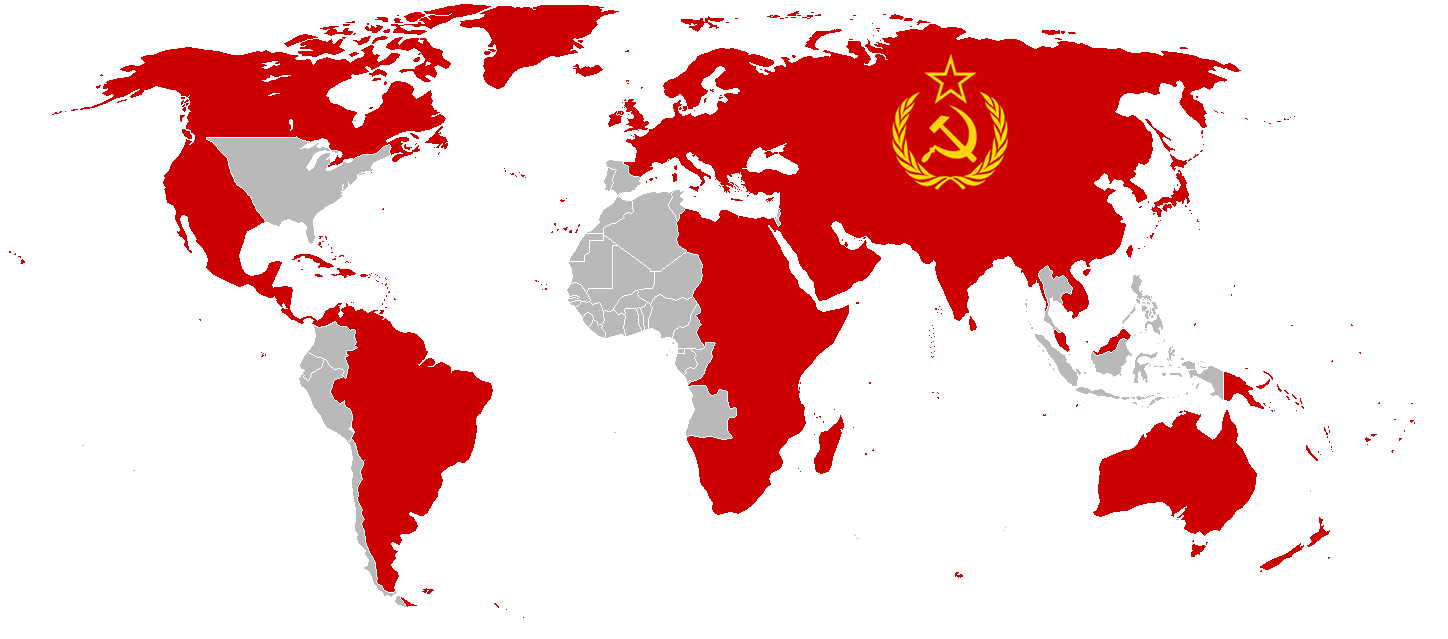No, they’re right, Xi would be helpless trying to explain dialectical materialism to a reader of the Wall Street Journal
I’ll be honest it took me a minute to figure out what they could’ve meant aside from this
That fully reads as “Xi Jinping says Marxism because you’re too stupid to understand dialectical materialism”
Joke is on us, they got us all to read the WSJ!
And even more to the author of that piece

I love checking the byline on these opinion pieces.
The author is a member of the “Committee for Freedom in Hong Kong” and has based most of his career on fearmongering Tiananmen Square. He was banned from entering China years ago, so obviously is extremely unbiased.
his “B.S. in chemical engineering” came out of a hollow program for politically favored people, and his 1998-2002 “doctorate in Marxism” was written by his staff.
Sounds like a bunch of unsubstantiated rumours
he is widely disliked within the party
What.
he controls the levers that keep him in place.
I hate it when liberals try to talk about other country’s political systems. The fuck are “levers of power”? Are there a set of levers in the NPC that if you control you can change the weather in china or something? Joking aside, there is no explanation of what the fuck mechanism there is by which xi can be chair of the party despite being disliked by it.
Its utter emptiness is evident when you set it side-by-side with his parallel claim to inherit Confucius
This is the closest the article comes to making a valid critique of xi’s grasp on Marxism. While I am skeptical of the value of confusian thinking myself, it is ironically anti-materialist to assume that a pure Marxism untainted by the values and traditions of a person can exist.
I would much rather chinese communists openly proclaim the influence of their culture on their thinking than for them to assume that they have surpassed the flow of time. As althusser puts it, the distinguishing mark of ideology is that it proclaims itself to have no history. As such, Xi’s view is far closer to the scientific practice of Marxism than to ideology (in the marxist sense).
Sounds like a bunch of unsubstantiated rumours
Even Wikipedia, which straight up starts talking about censorship in his article’s intro, says nothing about these claims. Even the sources they use for facts about his education background, one of which is a lib Guardian article, mentions nothing about this. So it’s likely he made it the fuck up or an “unnamed source” told him about it.
“unnamed source”

he is widely disliked within the party
Which is why they keep electing him
he controls the levers that keep him in place.
He is the president goddammit! Controlling levers is what presidents do.
The fuck are “levers of power”?
While Stalin was spooning the Ukrainians, Mao used the Levers of Power to take China and North Korea for the communists.
his “B.S. in chemical engineering” came out of a hollow program for politically favored people
Good thing there isn’t a failson factory like that in Burgerland, right?

Yale’s got to be a work of dystopian fiction, right?

To be fair, Confucianism is extremely reactionary and should be combated. It would make much more sense to have a Daoist Marxism than a Confucian one.
I wouldn’t say “extremely” reactionary but it does have reactionary elements. Probably not more than Abrahamic religions do, though i will admit i’m not an expert on Confucianism. (And yes i know it’s a philosophy and not strictly speaking a religion, but i think the comparison is fair in the sense that it’s one of the ideological frameworks that left a very big historical imprint on the cultures and systems of government in the region, much like religion did for Europe and West Asia.)
Whether it should be combated or not is not for me to say since i’m not from that region or culture.
I wouldn’t say “extremely” reactionary but it does have reactionary elements. Probably not more than Abrahamic religions do
That’s like saying “He’s not ‘extremely’ violent, probably not more than Mengele”
Whether it should be combated or not is not for me to say since i’m not from that region or culture.
This is extremely backwards, anti-marxist thinking. To get a good grasp on the nature of things might take you much more investigation because of your lack of baseline familiarity, but you are not fundamentally and unalterably excluded from criticism. Chinese people aren’t space aliens.
Should all of Christianity and all of Islam be combated as well? Once upon a time i might have said yes, but now i don’t know. Maybe eventually.
But is it really a priority at the moment? Is this the primary contradiction that we are facing? Would adopting such an uncompromisingly hostile line be a strategically smart thing to do at the moment, or would it be counter-productive from the point of view of bringing about the success of the revolution?
Would it not be more prudent to focus on denouncing specifically the most reactionary elements of these philosophies/religions while ignoring the more benign ones, at least for the time being? I acknowledge your point that everyone is able to familiarize themselves with and judge what elements of these things are detrimental and which are less so, but we should also be careful to not fall into the trap of cultural chauvinism.
Would it not be more prudent to focus on denouncing specifically the most reactionary elements of these philosophies/religions while ignoring the more benign ones, at least for the time being? I acknowledge your point that everyone is able to familiarize themselves with and judge what elements of these things are detrimental and which are less so, but we should also be careful to not fall into the trap of cultural chauvinism.
Exactly, Mao fusing elements of confucianism with Marxism is a huge part of it’s success in China. Rejecting the impact of culture and traditions developed in any given society is not marxism but a vulgarization of marxism, and an efficient way of getting dismissed by the people.
“I want no part of the kind of Marxism which infers all phenomena and all changes in the ideological superstructure of society directly and blandly from its economic basis, for things are not as simple as all that.” — V. I. Lenin, 1920.
https://www.marxists.org/archive/zetkin/1925/lenin/zetkin2.htm
Rejecting the impact of culture and traditions developed in any given society is not marxism but a vulgarization of marxism, and an efficient way of getting dismissed by the people.
This is the view that i have come around to accepting as well.
Coming from a scientific background for me this is ultimately a matter of pragmatism. We can have abstract ideological and philosophical debates all we want but what it really comes down to when we are considering whether to adopt a political line or a policy is this: will it advance the goals of the revolution or hinder them? Ultimately that is the most important thing because all further progress depends on the success of the revolution.
A correct line/policy is that which helps the cause of the revolution to succeed. An erroneous one does the opposite…whether we call it vulgarization or idealism or just ultra-left deviation (that is trying to advance socially and ideologically too far ahead of where the material and cultural basis of a society is currently at) is less important to me than what the practical result is in relation to the success of the revolution and the building of socialism.
The tricky part is that often we can only know what works and what doesn’t with the benefit of hindsight, which is why proceeding according to trial and error is important (China for example often does this by trying out new and experimental policies on a smaller local scale first before adopting the successful ones on a larger scale), but also studying and learning from past revolutionaries and their successes and failures.
I think it depends on where you are. In my area, it would be pointless as the presence has significantly waned for religion compared to a time only a bit ago. In some Latin American countries, or in other exploited nations; I could see an argument to be made to have it as one of the struggles. Certainly not the prime contradiction.
Should all of Christianity and all of Islam be combated as well? Once upon a time i might have said yes, but now i don’t know. Maybe eventually.
Let me point out first that there’s a difference between a religion/philosophy as a major component of a countries superstructure vs something that merely exists in personal practices here and there.
With that caveat, I think most of us who live in America would say that Christianity absolutely does need to be rooted out of the culture because it is monstrous.
But is it really a priority at the moment? Is this the primary contradiction that we are facing?
You can’t accomplish revolutionary change by focusing on exactly one thing at a time while letting all other forms of reaction flourish. That is a form of tailism.
Would it not be more prudent to focus on denouncing specifically the most reactionary elements of these philosophies/religions while ignoring the more benign ones, at least for the time being?
What matters is if it is actually actionably reactionary. Confucianism, being a philosophy and not a religion, really loses wiggle room that religions have in terms of benign beliefs like “mee-maw is looking down on me from Heaven” or whatever. It’s almost entirely things that have real, practical significance, like filial piety and ren (which are reactionary).
I think most of us who live in America would say that Christianity absolutely does need to be rooted out of the culture because it is monstrous.
On a personal level i agree with you, but politically that is probably a non-starter. You have to work with the material you have in front of you, not the material you wish you had. The masses that form the basis of a revolution exist in a real cultural context and ignoring that reality is idealism.
I don’t know what the right answer is here, but it’s probably going to involve some sort of pragmatic compromise, otherwise your revolutionary movement will remain small, sectarian, insular, dogmatic and isolated from the masses. It goes without saying that this is a recipe for perpetual failure, and the bourgeois state knows this too which is why COINTELPRO has always strived to encourage that sort of narrow ideological dogmatism.
And before anyone misunderstands what i am saying, this does not mean that we should be tailing the masses. Absolutely we should continue to denounce the reactionary elements of our culture, because it is precisely these which are the biggest hindrance to waging a successful revolution (false consciousness, etc.).
Confucianism, being a philosophy and not a religion, really loses wiggle room that religions have in terms of benign beliefs
I’m actually inclined to give Confucianism more leeway because of this. Religions, especially theistic ones, are fundamentally anti-materialist, whereas an atheistic philosophy at least could be compatible with materialism (not saying that it is…again: i just don’t know enough about it).
It’s almost entirely things that have real, practical significance, like filial piety and ren (which are reactionary).
I am not a big fan of the whole “filial piety” thing myself, but then again i didn’t grow up in that culture. I’m sure if you asked Chinese communists many of them would disagree with your view that filial piety is necessarily reactionary. They might acknowledge some downsides but ultimately view it as a net positive.
I just think we could all do with a little more humility and not be so quick to dismiss other cultures’ mores just because they don’t align with our own cultural ideas of what it means to be progressive.
On a personal level i agree with you, but politically that is probably a non-starter . . .
I’m not saying Christianity as a personal practice needs to be destroyed, but essentially that the country needs to be secularized by any means necessary because Christo-fascist theocratic policy has massive support in some places. There can be no privileging Christians above other citizens, no “teaching the controversy” on science and myth, no cultish Christian home"schools", no protecting the souls of blastocysts, etc.
This shit isn’t something that would make a popular movement non-viable, it would help it while preventing massive, systemic abuse of women and children, because the simple fact of the matter is that this shit only gets into legislation because of massive backing by the bourgeoisie. Most people even in the most conservative states oppose it, it’s just the fucking Christian nationalist think tanks that push it.
. . . whereas an atheistic philosophy at least could (not saying that it is) be compatible with materialism.
I mentioned Daoism, I think it was to you. Daoism definitely has elements compatible with materialism. I’m not convinced that Confucianism has any except maybe yì.
I am not a big fan of the whole “filial piety” thing myself . . .
I’ve had the opportunity to argue somewhat extensively with a Chinese communist about a number of issues, filial piety being one. He is, like a lot of them are, revisionist, but I need to give him credit for being open-minded. I don’t think it was all that possible even to change his mind, but he at least acknowledged that I had a point when I claimed filial piety is hierarchical and (coincidentally like some of the western practices that I just mentioned) absolutely begging for abuse on the part of the patriarch and – speaking of there being patriarchs – deeply sexist, and, in addition, it and ren represent a dysfunctional way to order an egalitarian society if family members are commanded to give deontological preference to their own family and those closest to them.
Almost no one, myself included, thinks he went about it in a constructive way, but Mao had reason to want to fight this stuff.
It’s not like I’m saying they should follow American ideas of progressiveness, I’m not saying Xi should wear a dashiki and kneel for eight minutes, but in a broader sense Mao acknowledged and the country was built on the belief that there is some amount of trans-culturally relevant notions of what it means to be a progressive (e.g. Marxism-Leninism) and that these should be pursued, even if the application looks different in different places.
What matters is if it is actually actionably reactionary. Confucianism, being a philosophy and not a religion, really loses wiggle room that religions have in terms of benign beliefs like “mee-maw is looking down on me from Heaven” or whatever. It’s almost entirely things that have real, practical significance, like filial piety and ren (which are reactionary).
I think this is a very poor interpretation of confucianism. Confucianism as a political system, used by feudal rulers to enforce control over society, has been practically completed rooted out, and most of the reactionary elements you mention are more complicated than you make them seem… Are they reactionary? Maybe partially, but a respect for parents doesn’t mean that Chinese will take shit from the people raising them lying down, and likewise ren doesn’t mean they’ll let people walk over them. Confucius himself discussed these concepts in his original teachings, where you can clearly see that he gives different concepts to different students depending on their own situations, which I would argue ironically is the best approach to applying marxism to various movements today.
I don’t know anything about daoism (or taoism, are they similar?). Got any books to recommend?
Taoism is the same thing, just using the old transliteration system where Beijing is Peking and Mao Zedong is Mao Tsetung.
My recommendation is just to read the Daodejing. It’s a pretty short compilation of poems that is the main text of Daoism.
deleted by creator
This article is hilarious. I am not even sure who the target audience is meant to be -sinophobic liberals who know what dialectical materialism is? That seems very niche. Maybe it doesn’t have to make sense, maybe they were going for a word-salad vibes-based character-assassination.
Also the “shrodinger-style” attack; apparently Xi is both a very smart CPC president and also not able to explain dialectical materialism. Obviously no citations or proof offered for any of the allegations including the attacks of his higher education credentials.
The imperialist intelligensia must be getting more and more desperate as the contradictions of their parasitic economies draws on evermore deepening crises.
Addendum - I just saw someone else make a similar comment before me. I’ll just leave it here rather than deleting this.
this just caters to ultras, who funnily don’t know what dialectical materialism is.
Maybe but I am not sure ultras as a group have any sufficient political presence globally. I am not sure the author/editors are smart enough to target them specifically let alone WSJ be aware of their presence to merit propaganda aimed at them. Collectively western propaganda and intelligence win historically because of the sheer size of capital they put behind their schemes (backed by populations benefiting from the unequal exchange and security apparatus barbarism) - individuals may be evil and smart but as organisations they are large and blundering. You would think by now they would deftly versed in marxist-leninism - you know just from the viewpoint in defeating their enemy. However, their propaganda is so weak in substance that a superficial overview of an ML understanding of the world is sufficient for westerners to breakthrough their smokescreen (if they wanted to). I think one of Marx’s key breakthrough is how capital after being reified can defend itself “organically”.
its definitely weird, but i do think there is an abundance of ultras in the west who despise China more than the US itself. Also not every article has to cater the largest groups, articles like this can cater liberals and ultras alike.
I can testify to that; there are a considerable group of “leftists” who despise China.
I read exclusively wsj to learn concepts like dialectical materialism
This is silly. Because even if Xi is a secret capitalist roader revisionist etc, which I don’t believe, he probably could explain dialectical materialism, having been raised and educated about Marxism.
Like Viktor Orban or Vladimir Putin could probably explain dialectical materialism, having both grown up under communism and being former communist party members. But obviously neither are communist.
I honestly don’t understand why diamat is treated like some mysterious and inscrutable thing in the west. I recall Chomsky also has this comment how he doesn’t know what it is. Yet, people seem to have no problem understanding terms like thermodynamics, selections pressures, or emergent phenomena. It just seems like a case of a term intentionally being made out to be difficult to understand to discourage people from trying.
Chomsky saying he has no clue what dialectics is and no intention of finding out is a masks off moment.

absolutely
Apparently creationists learning biology enough to pass university level tests without believing the content is common enough
lmao
Wait, this is a real article? If so, then holy shit, this is the first time I have seen a liberal, much less someone on the wall street journal mention the concept of dialectical materialism.
Yes. It is very believable that the guy who holds a doctorate in Marxism is unable to explain the concept of dialectic materialism. I am sure this is a very serious and credible text
To be fair, explaining diamat to the average WSJ reader is hard mode
Marxism
MarxismMarXismGasp, they’re right!

The Wall Street Journal, truly the last bastion of Marxist understanding. What the fuck am I looking at?
Marxism is a mask for Xi

The most mediocre westerner thinks they know more than the leader of a nation of a billion people that is by most criteria operating smoothly. That’s how badly orientalism has seeped into culture here.
By Em. Professor Perry Link, Princeton University. American Sinologist. I wonder, what’s his beef with Xi?
From Wikipedia
Link has been a Board Member of the Committee for Freedom in Hong Kong (CFHK) since 2021. CFHK is a US-based non-profit organisation, which presses for the preservation of freedom, democracy, and international law in Hong Kong.
Along with Andrew J. Nathan, he translated the Tiananmen Papers
This is like John Bolton writing an opinion piece about Iraq or Iran. A little harsh, sure, but he’s definitely not a neutral party. I wonder what he was up to in June 1989? Not even one of your standard anti-CPC mouth pieces, this guy is a main part of the horn and played a significant part.
My favorite quote from the article, taken out of context:
“It is a claim to intellectual heritage that he makes to enhance his prestige—and hence his power. Its utter emptiness is evident…”
Em. Professor. Perry Link
Ok, that last part was me lashing out because I am particularly fed up with PhDs at this moment.
“American Sinologist” has some big “making sense of the savages and their strange oriental ways” kind of vibes.
I’ll take things said by both the WSJ and smug western ultras for $500 Alex.
Xi before author was born:
I wouldn’t rate that very highly on diamat
disagree, the essay is very simple but full of dialectical thinking and materialist philosophy.
How?
As a metaphor for things, dripping water is a demonstration of dialectical principles that use softness to overcome hardness, and the weak to control the strong. I believe in the invaluable spirit of that drop of water, which bravely goes into the breach with no thought of retreat. Those of us who are involved in economic development will inevitably encounter complications in our work. We can either rise to the challenge or flinch and run away. It all depends on whether we have the courage to adhere to philosophical materialism.
When dripping water takes aim at a rock, each droplet zeroes in on the same target and stays the course until its mission is complete. The drops of water fall day after day, year after year. This is the magic that enables dripping water to drill through rock! How can it be that our economic development work is any different? Just look at areas where the economy is lagging. Historical, environmental, and geographical factors have all played a part in holding back development. There are no shortcuts. Nothing can change overnight. Instead, we need to focus on the long haul by turning quantitative changes into qualitative changes.
Things as a process, sum of quantitative changes lead to qualitative changes, struggle of opposites(soft overcomes hard), objective reality, the world and its laws are unknowable, rejection of mysticism, etc… It’s all covered. As i mentioned, it’s a simple text but it filled with these principles.
the world and its laws are unknowable, rejection of mysticism

knowable* woops
GOOD post



















